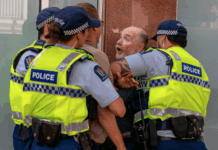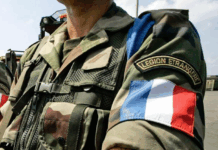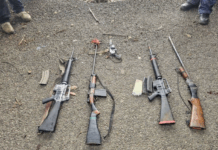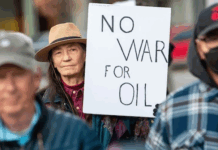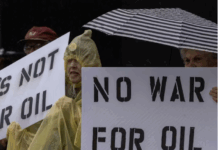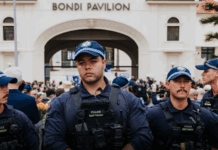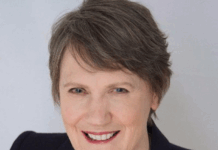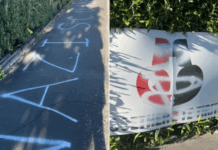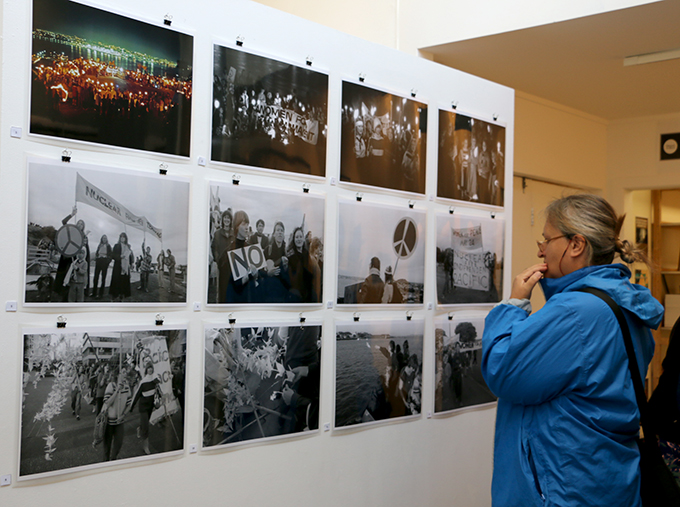
By Kendall Hutt in Auckland
As international talks at the United Nations on the ban of nuclear weapons draw closer, New Zealand nuclear free and peace activists warn there is a lot of work to be done before the world will be safe from a nuclear war.
“We’ve still got a lot of work to do in the world,” Auckland Mayor Phil Goff reflected at Devonport’s Depot Artspace during a weekend event organised by the Women’s International League for Peace and Freedom (WILPF) Aotearoa and Devonport Peace Group.
Their warning comes as New Zealand celebrates 30 years since the country’s Nuclear Free Zone, Disarmament and Arms Control Act came into force on 8 June 1987.
Described as a “David versus Goliath” stand by Pacific Media Centre director Professor David Robie, the Act and the “grassroots, groundswell” movement behind it, saw New Zealand become the first Western nation to legislate to be nuclear free.
Goff said: “The Lange Labour government came along with the courage and the commitment, first of all to say to a powerful ally: ‘No, we are not going to go along with the nuclear umbrella. No, we are not going to support your possession of nuclear weapons.
“We are a small nation, but we are a proud and independent nation and we are going to make our country nuclear free’. And we did,” Goff said.
Maire Leadbeater of the Campaign for Nuclear Disarmament said: “Everything was against us, but we did it.”
‘Ahead of the game’
However, it was also important to remember the Pacific’s contribution to New Zealand’s anti-nuclear campaign, said Dr Robie.
Not only did this come through the fact that the Pacific was “ahead of the game” – Palau, Vanuatu, and Tahiti’s largest municipality, the airport suburb of Fa’aa, declaring themselves nuclear free – but also through opposition to French nuclear testing.
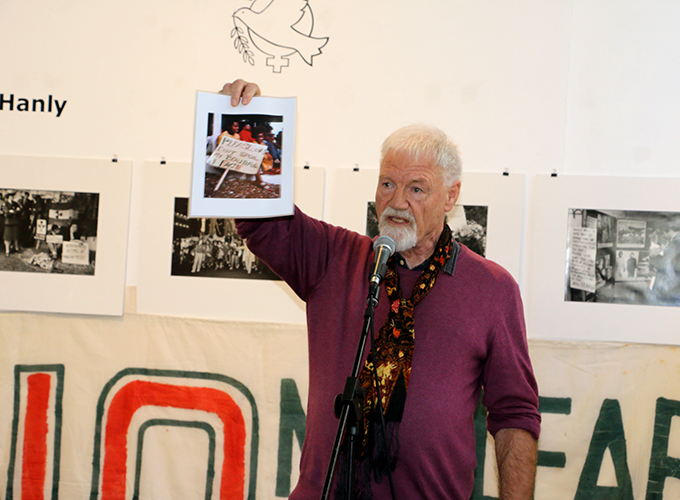
As revealed in John Pilger’s latest documentary The Coming War On China, Dr Robie said, the “total yield of the nuclear experiments on and around the Marshall Islands was equal to 7200 Hiroshima bombs, meaning the equivalent of more than one Hiroshima bomb was exploded in the area every day for 12 years.”
He also said: “The French committed shameful acts in defence of nuclear colonialism” — such as the 1985 assassination of Kanak leader Eloi Machoro and the 1988 Ouvea cave massacre of 19 young militants.
But the “reunion”, as Goff himself described it, of many of the activists who were on the frontlines of New Zealand’s nuclear free movement, was ultimately overshadowed by apparent inaction by “nuclear states” over nuclear disarmament.
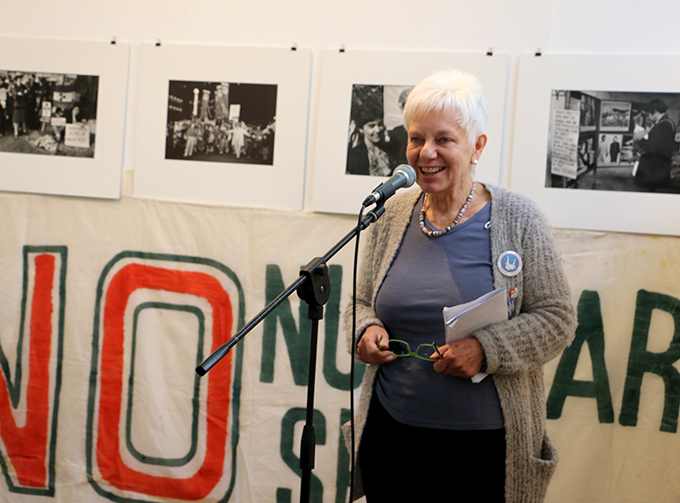
“We fought the battle in New Zealand, we made a mark on the international stage, we told the powerful and the strong that we would stand up for ourselves and we would stand by our values. But our world has not become a safer place. If anything, it has become a less safe place,” he said.
Leadbeater said: “Things really haven’t changed in terms of the international scene.”
‘Still much work to be done’
WILPF Aotearoa’s president Megan Hutching also reflected:
“We should not rest on the laurels of the 1987 Nuclear Free Zone, Disarmament and Arms Control Act because there is still much work to be done before we can live in a safe, nuclear weapons free world.”
This is due to the fact there are currently 15,000 nuclear warheads in the world, Goff said.
Of greater concern still, he said, was countries such as North Korea joining the nuclear arms race.
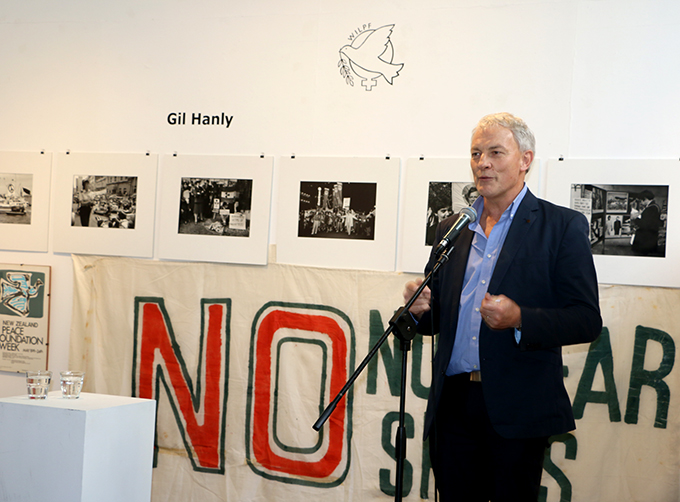
“Alongside the five nuclear weapon states we’ve had India, Pakistan, Israel and North Korea all gain possession of nuclear weapons and the missile systems to launch them.”
Leadbeater said the world was still living in fear of a “nuclear war by accident”.
“We still live in a very dangerous world… The world is crying out for so many other important needs. It’s a shameful thing and a dangerous, dangerous thing.”
Youth involvement needed
In light of this, many of the activists reflected it was time for New Zealand’s youth to pick up the baton, although it would be a challenge, they acknowledged.
“The greatest challenge is trying to get the youth to continue with the struggles so that we can pass on the baton to them, especially in the nuclear movement” said Fijian peace activist and researcher Ema Tagicakibau from the Nuclear Free and Independent Pacific (NFIP) movement.
“In that, the challenge remains and the struggle continues.”
“Things are just as serious as they ever were, but we don’t unfortunately have that same sort of momentum among the community,” Leadbeater said.
Visual Artists Against Nuclear Arms (VAANA) member Margaret Lawlor Bartlett reflected: “We need a group of young, dedicated anti-nuclear people.”
The youth of today, however, do provide a sense of hope for the future, Leadbeater concluded, reflecting the general feeling of many in the room.
“In remembering these great times and the wonderful excitement of so many other people, let us hope that it does strengthen us to carry on and to perhaps now take our leadership from the young and find ways to carry on.”
A former WILPF Aotearoa president, Pauline Tangiora, a kuia of the Rongomaiwahine from Mahia, cut the 30th nuclear-free anniversary cake. She was nominated in 2005 among 1000 peace women activists globally for a “collective” Nobel Peace Prize.
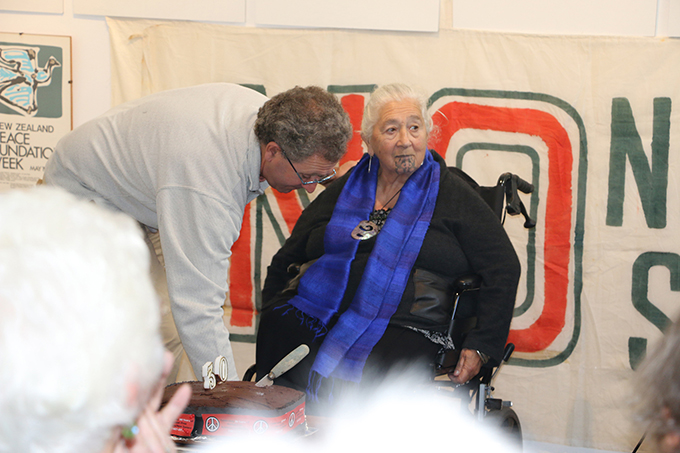
The United Nations conference to negotiate a nuclear weapons ban will continue on June 15 until July 7.


